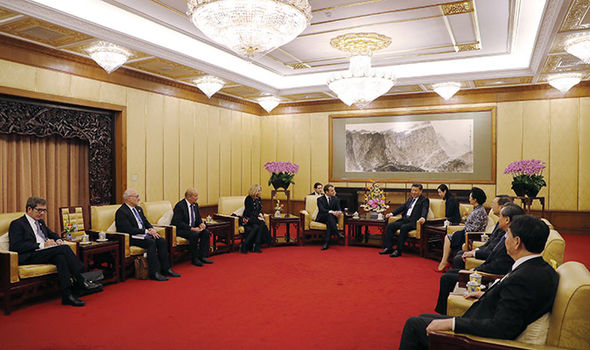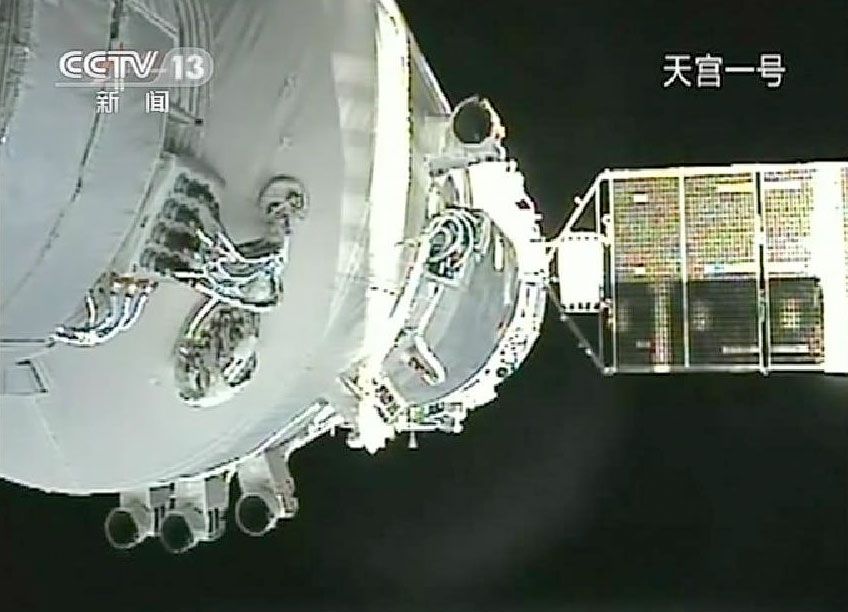European Union Trade Policy: Macron Advocates For A "Buy European" Approach

Table of Contents
Macron's "Buy European" Proposal: A Detailed Examination
Macron's "Buy European" initiative aims to bolster European industries and reduce reliance on imports. While not explicitly protectionist, it prioritizes European products and services through various policy measures. This differs significantly from outright protectionism, focusing instead on strategic support for domestic production.
- Targeted Sectors: Macron's focus likely includes strategically important sectors such as agriculture (especially French agricultural products), advanced manufacturing (including aerospace and automotive), and key technologies (like renewable energy and digital infrastructure).
- Proposed Legislation: The "Buy European" approach hasn't materialized into specific, unified legislation yet. However, it manifests through initiatives like increased public procurement spending directed towards European companies and potential adjustments to EU trade agreements to favor European businesses.
- Anticipated Economic Benefits: Macron anticipates increased job creation within the EU, strengthened domestic supply chains, and a more resilient European economy less vulnerable to global shocks. He envisions a "strategic autonomy" for the EU, reducing dependency on foreign suppliers for critical goods and services.
Economic Implications of a "Buy European" Strategy for the EU
A "Buy European" strategy presents both opportunities and challenges for the EU economy.
- Potential Benefits: Increased domestic production could lead to job growth, enhanced technological innovation within Europe, and a strengthening of the EU's industrial base. Reduced import dependency enhances supply chain resilience, particularly crucial in times of global uncertainty.
- Potential Drawbacks: Prioritizing European goods might lead to higher prices for consumers due to reduced competition. It could also trigger retaliatory measures from other countries, escalating into trade wars and harming overall economic growth. Furthermore, reduced global market participation might hinder the competitiveness of European businesses.
- Sector-Specific Impact: Sectors like agriculture could benefit significantly, while others, highly reliant on global supply chains (like electronics or pharmaceuticals), might face substantial challenges adapting to a more protectionist environment. The automotive sector, already facing significant challenges, could be particularly affected.
The EU's Existing Trade Policy Framework and its Compatibility with "Buy European"
The EU's current trade policy framework is largely built on the principles of free trade and multilateralism, centered around the World Trade Organization (WTO). It emphasizes the reduction of tariffs and non-tariff barriers, fostering open markets and encouraging global trade through various free trade agreements (FTAs).
- Conflict with Free Trade: A "Buy European" approach, even if implemented subtly, potentially conflicts with this commitment to free and open markets. It risks undermining the very foundation of the EU's trade relations with its partners.
- Impact on Existing Trade Agreements: The implementation of "Buy European" policies could necessitate renegotiating existing FTAs, potentially causing friction with trading partners and leading to legal disputes.
- Legal and Regulatory Challenges: Integrating "Buy European" principles into EU law requires careful navigation of existing WTO rules and EU regulations to avoid accusations of protectionism and legal challenges.
International Reactions and Geopolitical Implications
Macron's proposal has drawn mixed reactions internationally. Some countries view it as a worrying turn towards protectionism, while others might see it as a justifiable response to global economic challenges.
- Trade Retaliation: Protectionist measures could provoke retaliatory tariffs and trade restrictions from countries whose exports to the EU are affected, escalating trade tensions.
- Impact on EU Relations: The approach could strain relations with key trading partners, particularly the US and China, creating uncertainties in the global trading system.
- Geopolitical Implications: A more protectionist EU could weaken multilateral institutions and reshape global trade alliances, potentially leading to a more fragmented and less cooperative global economic order.
The Role of Public Procurement in Implementing "Buy European"
Public procurement, representing a significant portion of EU spending, plays a vital role in potentially influencing the purchase of European goods and services.
- Preferential Treatment: Governments could use "preferential treatment" in public tenders, giving priority to European companies, even if slightly more expensive than non-European competitors.
- Benefits and Drawbacks: This might boost European industries, but it also raises concerns about fairness, transparency, and potential inefficiencies. It may lead to higher costs for taxpayers and potentially hinder innovation by limiting access to more competitive global suppliers.
- Existing EU Rules: Existing EU regulations on public procurement aim to ensure transparency and equal treatment for all bidders, presenting a challenge in balancing domestic preference with these existing rules.
Conclusion
Macron's "Buy European" initiative represents a significant shift in the debate surrounding European Union Trade Policy. While aiming to strengthen European industries and create jobs, it carries risks of higher consumer prices, trade disputes, and a potential weakening of the EU’s commitment to free trade. The economic, political, and international implications are far-reaching. The successful implementation of such a strategy requires careful consideration of the potential drawbacks and a nuanced approach that balances the desire for a strong European economy with the importance of international cooperation and open markets. To further explore this critical issue impacting the EU’s future, research the detailed proposals being debated within the EU institutions and consult reports from organizations like the OECD and the WTO. Understanding the complexities of European Union Trade Policy and the implications of a "Buy European" movement is crucial for informed participation in this critical debate.

Featured Posts
-
 The Popularity Of Dexter Resurrections New Villain
May 21, 2025
The Popularity Of Dexter Resurrections New Villain
May 21, 2025 -
 Apples Llm Siri A Comeback Strategy
May 21, 2025
Apples Llm Siri A Comeback Strategy
May 21, 2025 -
 Is De Nederlandse Woningmarkt Betaalbaar Het Standpunt Van Abn Amro En Geen Stijl
May 21, 2025
Is De Nederlandse Woningmarkt Betaalbaar Het Standpunt Van Abn Amro En Geen Stijl
May 21, 2025 -
 3 Laebyn Yndmwn Lawl Mrt Lmntkhb Alwlayat Almthdt Alamrykyt Bqyadt Almdrb Bwtshytynw
May 21, 2025
3 Laebyn Yndmwn Lawl Mrt Lmntkhb Alwlayat Almthdt Alamrykyt Bqyadt Almdrb Bwtshytynw
May 21, 2025 -
 5 Podcasts De Misterio Suspenso Y Terror Que Debes Escuchar
May 21, 2025
5 Podcasts De Misterio Suspenso Y Terror Que Debes Escuchar
May 21, 2025
Latest Posts
-
 Experience Superior Sound The Best Wireless Headphones Available
May 21, 2025
Experience Superior Sound The Best Wireless Headphones Available
May 21, 2025 -
 The Development And Deployment Of Chinas Space Supercomputer
May 21, 2025
The Development And Deployment Of Chinas Space Supercomputer
May 21, 2025 -
 Wireless Headphones New And Improved Models Reviewed
May 21, 2025
Wireless Headphones New And Improved Models Reviewed
May 21, 2025 -
 First Space Based Supercomputer Chinas Groundbreaking Achievement
May 21, 2025
First Space Based Supercomputer Chinas Groundbreaking Achievement
May 21, 2025 -
 Space Based Supercomputing Chinas Technological Leap Forward
May 21, 2025
Space Based Supercomputing Chinas Technological Leap Forward
May 21, 2025
